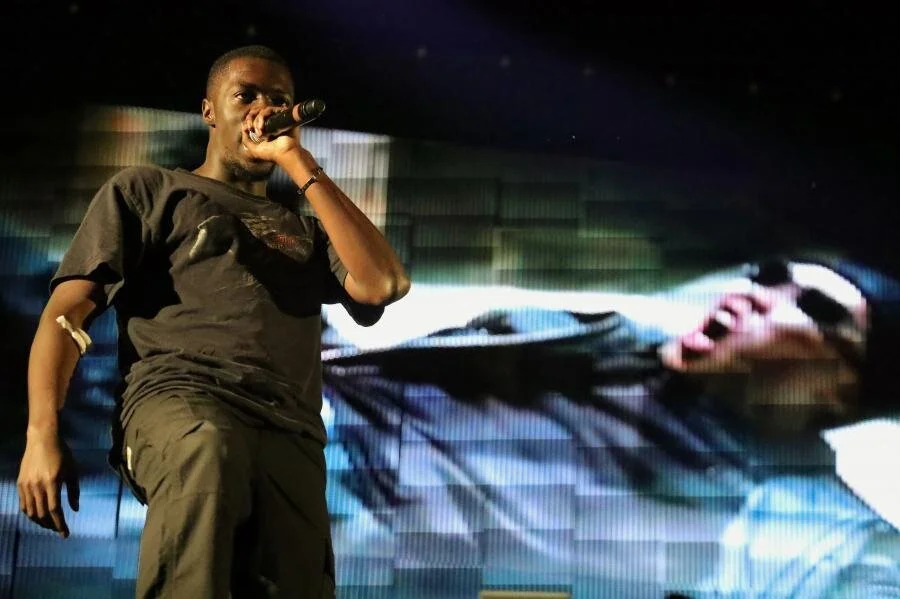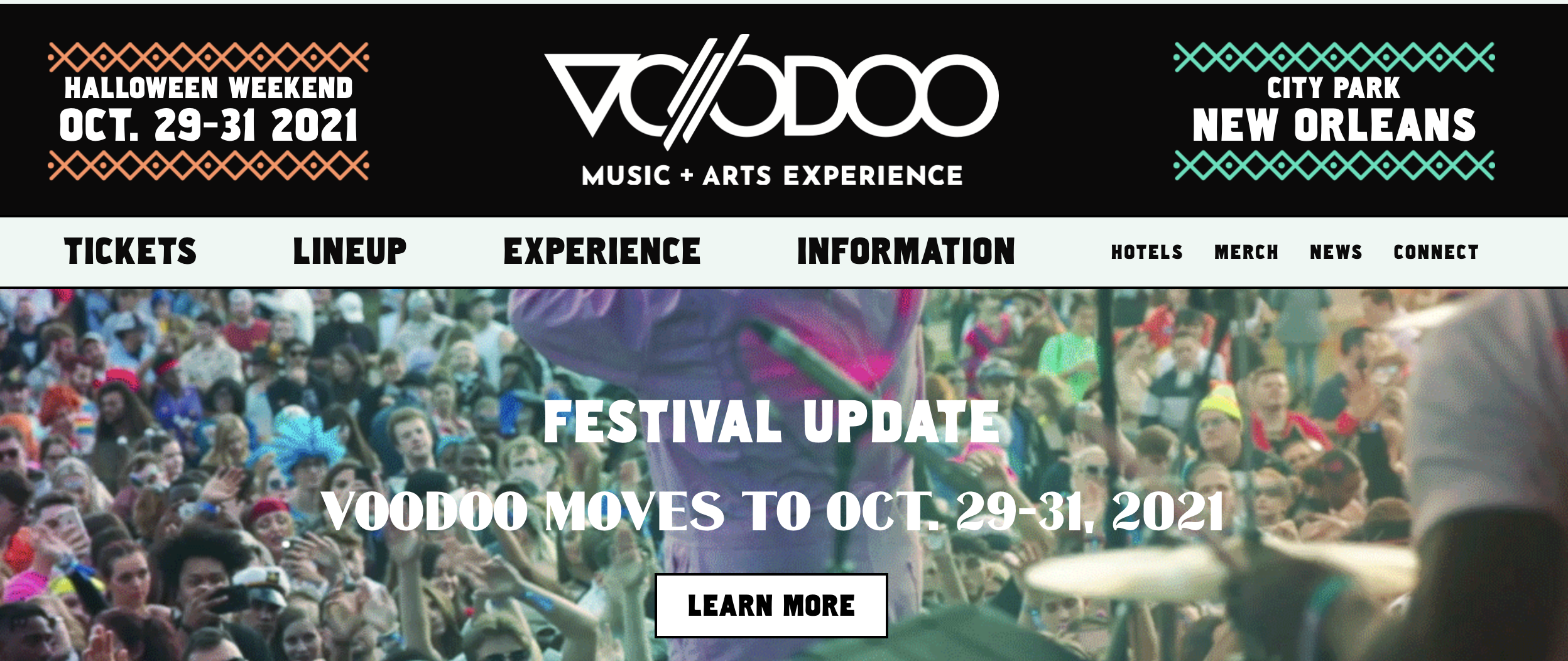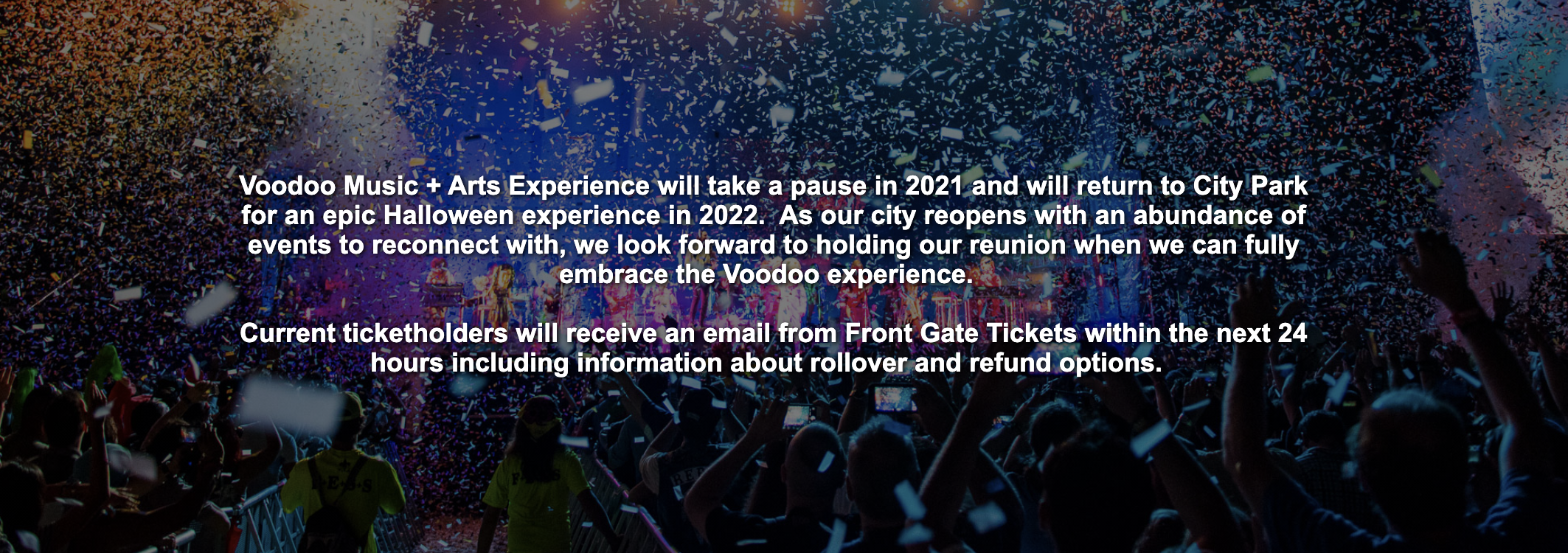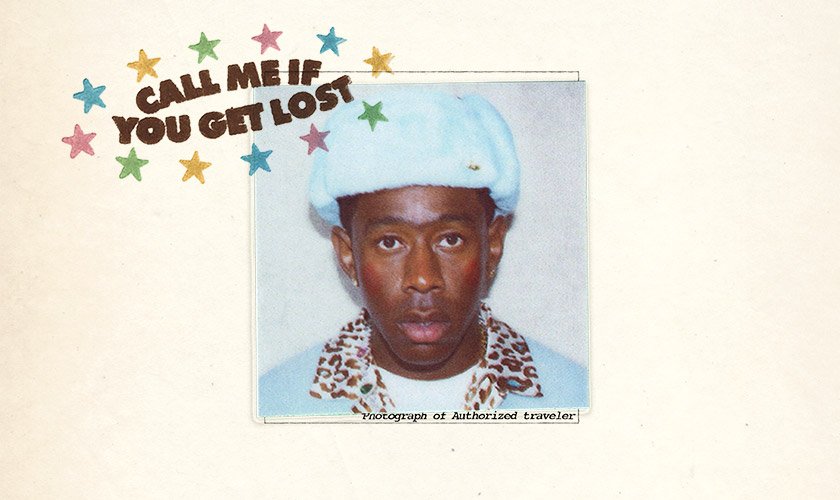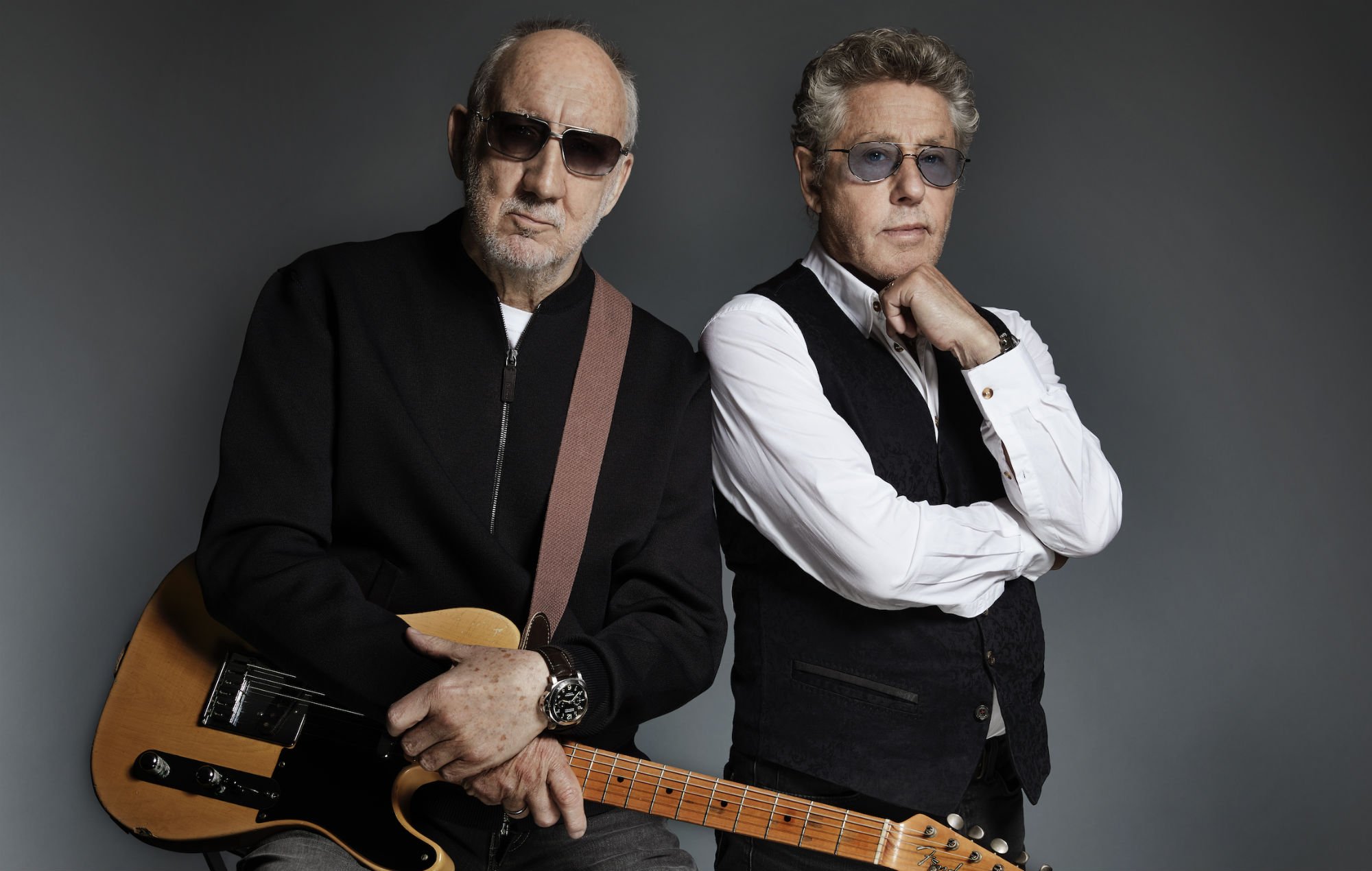Is Voodoo 2022's Cancellation a Negotiation Tactic?
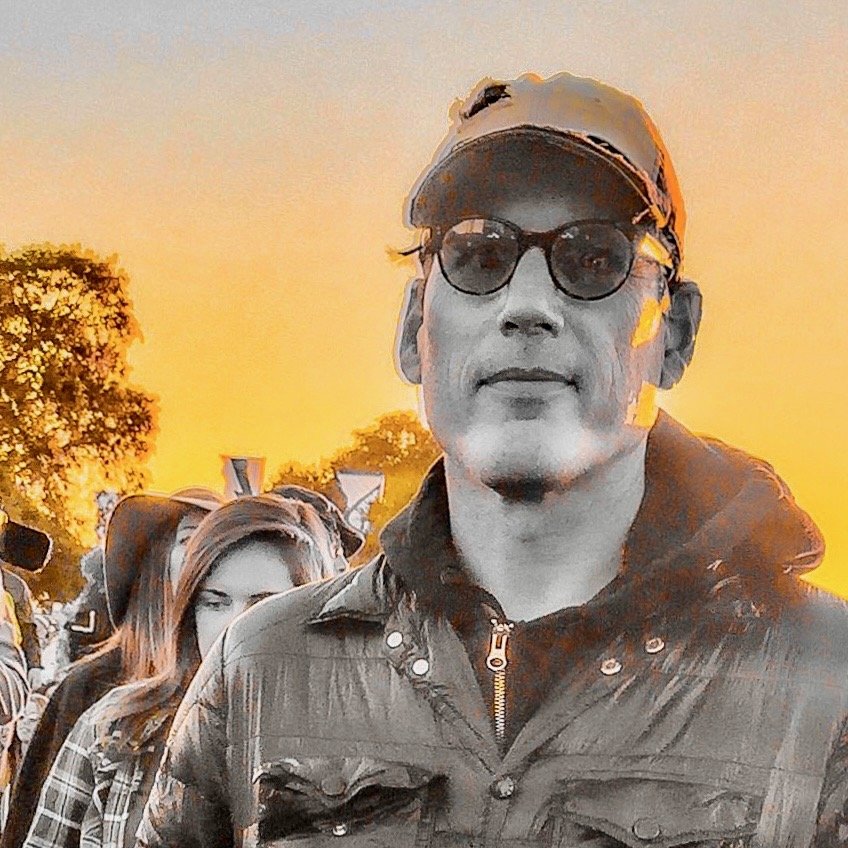
Steve Rehage in 2017, courtesy of Rehage.
According to the festival’s founder and co-owner Stephen Rehage, Live Nation told him it didn’t plan to run Voodoo until it owns it entirely.
On June 10, the Voodoo Music + Arts Experience announced that the festival “will take a pause in 2022,” which left it to fans and skeptics to wonder what’s going on. When the festival cancelled in 2020, COVID was clearly the cause, and uncertainty about COVID and its impact on attendance was assumed to be the reason for the cancellation of Voodoo 2021, but the announcement that year was equally tight-lipped.
Last year, the cancellation of Jazz Fest and Buku’s Planet B and a COVID spike in the late summer certainly suggested that Voodoo made the right call when it officially bailed out in June 2021, well before either of those festivals decided not to go forward. but this June’s announcement was more puzzling. Not only were established festivals like Lollapalooza, ACL and Bonnaroo going forward, but Buku, Jazz Fest, and the comparable Hangout in Gulf Shores had already taken place, and rock festivals around the country are gearing up to return this year. Voodoo’s early exit left people wondering why. Neither Live Nation who owns Voodoo or C3 Presents who books it have answered that question, but based on an interview with Stephen Rehage, founder and minority share owner of Voodoo, it sounds like Live Nation is using the festival as leverage to get him to sell his remaining share.
Rehage founded Voodoo in 1999 to pick up where the radio alt-rock festivals left off, and he sold a controlling share of it to Live Nation in October 2013 when the concert promotion company named him president of its North American festivals division. That relationship lasted for more than three years until 2016 when the company announced, “Steve Rehage is no longer with Live Nation or managing Voodoo Music + Arts Experience, but he maintains an equity position in ownership of the festival. C3 will lead the day-to-day management of the Voodoo Music + Arts Experience moving forward.”
In retrospect, the relationship seemed unlikely. Contrasting his years running Voodoo with the three years when it was booked by C3 Presents illustrates very different ideas about how festivals should work. Voodoo under Rehage reflected an idiosyncratic sensibility with a tastemaker at the helm who tried to create a broader experience that would expose a rock festival’s young target audience to New Orleans music that they might otherwise not hear, and bring in older audiences with local, Jazz Fest-friendly acts.
When C3 booked Voodoo, the festival focused more precisely on servicing its target audience with current hitmakers, and it jettisoned any secondary missions and much of the local component including New Orleans acts with Gen X and boomer appeal. The festival became more efficient, more specific and often more professional, but there was little about its lineups or presentations that made it distinctive from other festivals from earlier in the summer.
Rehage still owns 49 percent of the festival, and he contended in a recent interview that Live Nation’s desire to buy him out is the reason that the festival was cancelled in 2021 and this year. He says that C3 co-founder Charlie Walker called him in January of 2021—before last year’s cancellation—and said that Live Nation didn’t plan to go forward with Voodoo until it owned 100 percent of the festival, and that it didn’t feel like it made sense to go forward with the festival while splitting it with him.
“They’ve known that they weren’t going to do this,” Rehage says. Walker declined through representatives to be interviewed for this story.
Rehage says that Walker asked what it would cost to buy him out. When Rehage named a price, Walker said it was too high but didn’t counter or ask for a lower number. He says Walker told him that if the festival didn’t go forward for two years, it would damage the brand and diminish its value, which Rehage took as a signal of their strategy to drive down his price by reducing the value and potentially the viability of Voodoo.
“There hasn’t been any significant movement since then,” Rehage says.
Sheck Wes at Voodoo 2019, by Alex Rawls
When Live Nation bought Voodoo and hired Rehage, the concert promotion company was just getting into the festival production game. Now, Live Nation’s festival page lists 26 festivals that it owns in part or outright, Voodoo notably not among them. The New York Times’ Ben Sisario wrote in 2015, “Once a marginal part of the music scene in North America, festivals now play an increasingly central role in the business. The biggest events, like Coachella and Electric Daisy Carnival, have built powerful identities, luring huge crowds as well as sponsorship dollars. And for the promoters who not only sell tickets but also control a range of other sales, like food and V.I.P. packages that can include amenities such as special viewing areas and luxury tents, they can be highly profitable.”
My Spilt Milk recently speculated that Voodoo cancelled out of concern for the festival’s profitability in 2022. The rising costs of trucking and labor and supply chain issues have driven up costs, and soft ticket sales at Bonnaroo suggest that maybe the festival business isn’t as automatic as it appeared in 2015. But Voodoo issued unrequested refunds in December 2021 for tickets purchased for Voodoo 2020, and Front Gate Tickets told the recipients at the time that Voodoo 2022 had been cancelled—before Buku and Jazz Fest took place, before the uncertainty in this year’s festival landscape emerged, and six months before the official announcement in June. C3 didn’t respond to a request for a statement in December when the refunds were issued.
So far, none of the 26 festivals Live Nation lists on its website has been cancelled. Lineups have been announced and tickets are on sale for ACL in Austin and III Points in Miami, both of which take place in October in the weekends before Halloween. The Electric Daisy Carnival Orlando scheduled for November 11-13 doesn’t have a lineup, but tickets are on sale for it as well. No other Live Nation festival in the U.S. has been cancelled this year, which suggests that either New Orleans is uniquely bad for business, or there are other issues at play beside Voodoo’s profitability.
Rehage admits that despite his conversation with Walker, he didn’t expect Live Nation to cancel Voodoo this year. “At some point, it doesn’t make business sense,” he says. Voodoo has a number of costs that it still faces each year even though the festival itself isn’t happening. “It’s not an insignificant amount of money.”
He looks back on Voodoo fondly, particularly the years between 2007 to 2012, the years centered on City Park’s Roosevelt Mall when it staged shows with artists as different as Rage Against the Machine, Erykah Badu, Metallica, Skrillex, The Meters, Ray Davies, and The Bingo! Show with a costume party vibe to pull the disparate pieces together. During that time, Voodoo became part of New Orleans’ cultural life.
“I thought it hit its stride near the end,” Rehage says. “That’s why I got the chance with Live Nation.”
Creator of My Spilt Milk and its spin-off Christmas music website and podcast, TwelveSongsOfChristmas.com.


